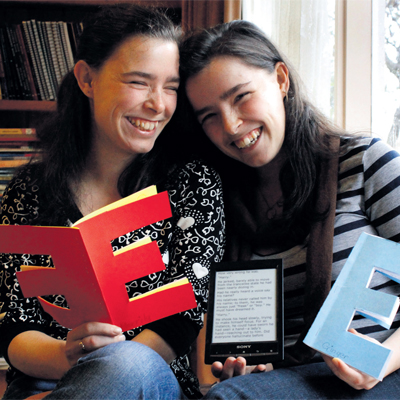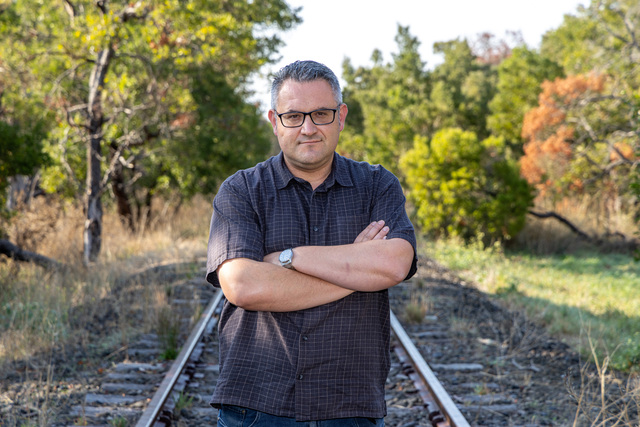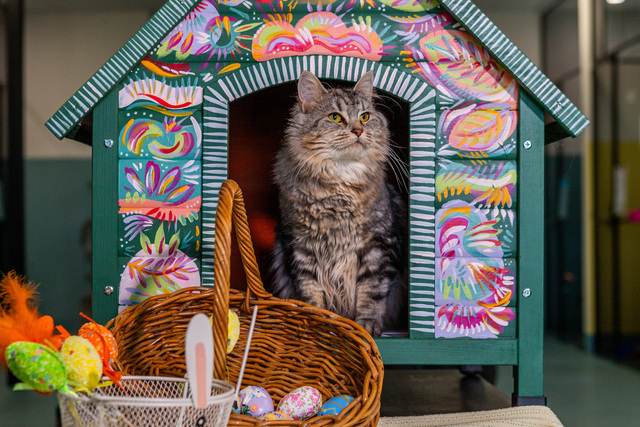What happens when your favourite book ends? One large online community says the fun never has to stop. Daniel Tran investigates the world of fan fiction.
Imagine what would have happened if Sherlock Holmes didn’t die. If Hagrid never came to pick up Harry to go to Hogwarts and if Romeo, yes that Romeo, was the one to sweep Lizzie Bennet off her feet.
Welcome to the world of fan fiction — where the book is not enough. There are millions of chapters online devoted to the new and improved adventures of well-loved fictional characters. Stories have been written about comics, movies and even Japanese anime cartoons.
Fan fiction, or just ‘fan-fic’, is separated into two worlds. Stories can be written to canon and stay faithful to the original writer’s descriptions or they can be OOC — out-of-character. This refers to when characters are plucked out of their normal settings and are sent in an alternate universe with a new personality.
Writing student Avrille Bylok-Collard, 21, is a firm believer in sticking to storylines.
‘‘I think that’s really, really important,’’ she says. ‘‘A lot of people try to do that in fan fiction. One of the most important things is keeping to the characters because that’s what people fall in love with.
‘‘If you completely change them and they have different character traits, most people don’t like it.
‘‘It’s just fake.’’
Like many readers of fan fiction, the Mount Waverley resident has also written some of her own material. She’s working on a new Sherlock Holmes adventure, told from the perspective of the great detective himself and not Dr Watson. But her first love is still Harry Potter.
‘‘When Harry Potter and the Half-blood Prince came out, there was a lot of speculation in the fan fiction community about whether J K [Rowling] had actually read our work because some of the things that popped up in the book were exactly what we had written,’’ she says excitedly.
To Avrille Bylok-Collard and other fan fiction writers, the things they produce are like a tribute to the original authors.
‘‘If I ever became a best selling author, I would be quite flattered actually,’’ she says.
But it’s not all Shakespeare.
‘‘There’s a lot of shit you have to filter before you get to something good.’’
Despite her love for writing and reading it, she doesn’t talk much about fan fiction.
‘‘I think there’s a little bit of a stigma to it. It’s an unspoken thing. When you mention fan fiction, it’s a just a little bit embrassing because people just look down on it a bit. It’s still an online community.
‘‘Most people tend to treat their online communities different from real life.’’
Monbulk’s Alison Smith found herself trawling through fan fiction because most of her favourite characters in the Harry Potter series were only in the background.
‘‘I wanted to know more,’’ she says.
She is penning a new adventure out for recently released blockbuster The Avengers.
‘‘It was tricky with The Avengers because I haven’t written anything apart from Harry Potter for a long time.’’
Despite the series finishing almost five years ago, Harry Potter continues to be a strong focal point for the fan fiction community.
Fanfiction.net is only one of thousands of sites for the online community and has at least 18,000 Harry Potter-based stories.
‘‘It’s still going because at the end of the series, people moved onto the children,’’ Avrille Bylok-Collard explains.
Osteopathy student Ginger Hansen says Harry Potter is what made the fan fiction community take off.
She and her sister Merrily are both avid readers.
‘‘There’s more Harry Potter out there than anything else and there are a lot of different sub-categories,’’ Ginger says.
‘‘You have the people who really like various ‘ships (relationships).
‘‘You’ve got the Harry and Hermione’s and Harry and Ginny’s. And you’ve got the people who really dislike Dumbledore or look into the psychological effects of what Harry’s life growing up would have created. Then you’ve got the nice fluffy ones that just go, ‘What would have happened if Hagrid didn’t go and find Harry in the first place? What would have happened? How would the story have changed?’’
Ms Hansen enjoys being a ‘‘beta’’ or proof-reader for budding fan fiction writers.
‘‘If there’s a writer, they might put out one or two chapters
and say, ‘I’m looking out for a beta.’
‘‘For fanfiction.net, which is probably the biggest one out there, you have to have already written something to be a beta on their site.’’
Ms Hansen says fan fiction has changed the way she looks at characters.
‘‘When I first read Harry Potter, I was a fair bit younger and I took it at face value. Since reading a lot of fan-fics, I’ve actually gone, ‘Oh I don’t really like Dumbledore’.’’
‘‘I used to love him. I don’t think he’s a great character any more. I think J K didn’t do a great job.’’
But ultimately, reading fan fiction has made the books she loves better.
‘‘I think it makes the whole world richer. You get more. It’s like chewing over your food slowly; you can taste more and different flavours come out. It doesn’t detract from the whole world in itself, but it does change my opinion of the original story.’’
Like her fellow fan fiction lovers Alison Smith acknowledges that not every story is up to scratch.
‘‘There’s a lot of really bad writing out there. It’s not like you’re reading a novel that’s been published and double-checked.
‘‘I think that’s where the stigma comes from; there’s just a whole heap of rubbish out there. You just have to be discerning when you’re reading it.’’
But she encourages people to jump on the internet and have a look.
‘‘I really like the creativity and I really like that people can change things and in some ways make stories better.’’

















